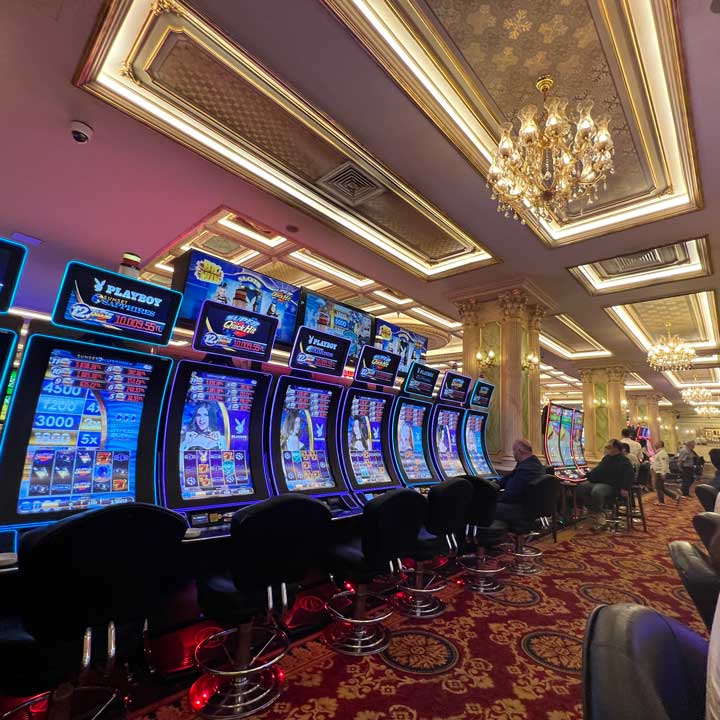
A realm of gambling games is continuously transforming, influenced by changing rules, technological progress, and shifting market demands. While authorities and gaming commissions strive to create a safe and fair space for players, the framework of casino regulations is experiencing major changes. UK bookmakers not on GamStop Understanding these developments is important for both operators and gamblers looking to navigate the exciting yet complicated world of gambling.
In recent times, various jurisdictions have suggested and enforced new regulations targeting improving the protection of players while promoting responsible gaming. These changes not only affect the varieties of casino games offered but also how they are marketed and obtained. In this article, we will explore the latest regulatory updates, their consequences for the gambling sector, and that which players can expect as they engage with their favorite gambling games.
Updated Legislative Systems
Current developments in gambling legislation are shaping the direction of gaming entertainment across various jurisdictions. Authorities are realizing the necessity for a robust oversight framework that not solely protects gamblers while also guarantees just gaming and sensible behavior. These frameworks are developed to resolve concerns such as online gambling, cryptocurrency currencies, and developments in tech, reflecting the transforming landscape of the gambling industry.
One notable trend is the implementation of more stringent rules regarding openness and player protection. Gambling venues are now mandated to provide clear data on odds, winnings, and the potential hazards involving gaming. This transition aims to enable gamblers by helping them make informed choices while also assisting to address gaming issues through sensible gambling measures. Gaming providers are required to set up self-exclusion initiatives and make available resources for players seeking aid.
Additionally, new rules are being enforced to novel technologies such as augmented reality and blockchain in gambling activities. Regulators are establishing standards to guarantee that these innovations maintain fairness and justice while also safeguarding player privacy. As the industry evolves, regulators are adjusting to verify that developments enrich the casino atmosphere while protecting both players and operators.
Impact on Game Diversity
The latest changes in casino game regulations have created novel opportunities for gaming experiences, allowing for enhanced innovation and variety within the sector. As authorities modernize their criteria, creators are motivated to develop unique game offerings that appeal to a larger audience. This has led to a rich tapestry of new games, incorporating multiple themes, styles, and features that were formerly ignored or limited by more rigid rules.
With a more flexible set of rules, gaming establishments are now able to experiment with alternative game formats, including skill-based games and interactive experiences. This change has produced a surge in hybrid games that mix classic gambling features with modern gaming styles, such as electronic gaming and augmented reality. By expanding the game offerings offered, gambling establishments can attract not only seasoned players but also casual players who may prefer less conventional options.
In addition, the development of standards has highlighted transparency and fairness in gambling, which could instill greater trust from players. As a result, consumers are more inclined to try a greater range of gaming experiences, understanding they are engaging with services that comply with new guidelines. This growing trust enhances player participation and can ultimately boost revenue growth as more varied selections meet varying interests and demographics in the gaming community.
Upcoming Trends in Oversight
As the casino landscape develops, regulators are increasingly focused on adopting technology-based solutions to enhance transparency and equity. The incorporation of distributed ledger technology into casino operations is projected to gain ground, allowing for increased oversight of operations and ensuring that activities remain equitable and unchangeable. This change could lead to a regulatory framework that welcomes these improvements, promoting trust among participants and providers alike.
In addition to technological incorporation, there will likely be a tighter emphasis on responsible gaming practices within the oversight environment. Authorities are anticipated to implement stricter measures to promote participant protection, including required self-exclusion systems and effective age verification mechanisms. This change aims to defend susceptible populations while ensuring that the experience of casino games is upheld for considerate gamblers.
Lastly, as online gaming continues to increase globally, harmonization of laws across different regions will become a urgent need. Countries may strive to collaborate more closely on unified standards for licensing, operation, and taxation. This could lead to a more streamlined regulatory process for global operators, fostering a greater acceptance of online gambling games while maintaining robust of gambler protection and fairness in the gambling industry.